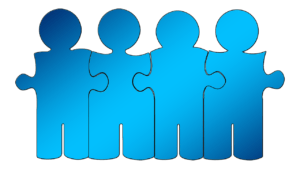Ahead of EHS Congress, taking place at the Estrel Congress Center in Berlin in May, SHP catches up with Consultant and former Director of Human Performance at BP, Diane Chadwick-Jones. She is still dedicated to delivering cultural change and improving organisational effectiveness and safety performance – here we get an insight into how she aims to do that.
Tell us a little about your background and how you got into safety…

Diane Chadwick-Jones
I worked at BP for 30 years, the first 15 years of that was in operations. There were complicated issues that were quite difficult to resolve so moving into the safety department gave me another way to look at the complexity and underlying conditions that may have contributed to those issues. I could see that, in the same way we have operational issues with many interacting underlying factors, the actions of the workforce are influenced by many factors within the workplace environment.
What I wanted to do when I joined the safety department was to help make difficult to see risks more visible. So that’s how I got involved in safety leadership and how I got involved in enabling human performance.
After a successful 30 year career, what have been the most important lessons you’ve learnt in the safety world?
We can’t wait for failure to be able to learn. If we just look at historical incidents and we focus on learning from those, we miss risks that are brewing for a similar incident but from a different combination of factors – or there’s an incident brewing out there that has never happened before.
It is so important that we look at what’s making the work difficult, including the difference between work-as-imagined and work-as-done.
As time goes by, industries continue to improve safety and incident rates get lower and lower, but then what happens is we get surprises. So looking at everyday work, high risk everyday work or critical tasks, that’s the way to get ahead of those surprises.
Since retiring, we know you want to help deliver cultural change and improve organisational effectiveness and safety performance – what do you believe are the top three ways companies should do this?
 I think the first thing is understanding how incidents really happen – many different things combine together for an incident to occur.
I think the first thing is understanding how incidents really happen – many different things combine together for an incident to occur.
Although it may appear that somebody from the frontline has caused the incident, when we look in more depth at what made sense to them at the time we find that these incidents are likely to have been in the making for months, perhaps even years, due to weaknesses in the workplace setup.
Therefore, explaining incident causation and showing case studies to our influencers in each organisation is vital to better understand risk.
The second is when we understand that the frontline is not the cause of these incidents and that employees are the last in a combination of many, many different factors. This helps us to change the way we react when things don’t go to plan.
How we respond to bad news matters to enable more transparency about issues.
The third way is continuing to build skills in leaders and people across the organisation, to realise that we can’t wait for failure to learn and that we look at the reality of everyday work to identify problems.
Leaders need to ask questions such as – what’s making the work difficult? What kind of things haven’t gone to plan in the past? What if somebody was not so experienced in this job, what do you think could cause an issue for them?
When the frontline tells us what’s actually going on and know that they won’t get punished for speaking up, then we’re building trust because we’ve responded in a supportive way.
By finding out what is causing difficulties in the work, we can get the issues fixed, therefore improving effectiveness and safety.
We know you’ve an advocate and mentor, focusing on increasing the representation of ethnic minority STEM talent in industry, why do you believe this is important?
 It’s all about enabling the talent pipeline.
It’s all about enabling the talent pipeline.
I see companies that recruit ethnic minority talent, the best of the best. But these talented people come into the company and then, because every company is a reflection of society, they encounter structural disadvantages and what that means is that they are not chosen for projects, they’re made to feel they don’t fit in. They get less opportunities which, combined with a variety of microaggressions, means that they leave the organisations.
I want companies to have strong talent pipelines with people from all backgrounds, welcoming and supporting ethnic minority talent.
That’s what inspires me to be involved and I volunteer for organisations that provide assistance and education to companies that are working on improvements.
Is there a lack of ethnic and cultural diversity in leadership in security & safety? Watch our webinar on-demand here!
What are you most looking forward to about attending EHS Congress, in Berlin, in May?
There are a lot of differences of opinion in the EHS Congress, where people come from many perspectives in terms of what safety is and what makes safety happen effectively. I welcome that because it challenges me and it makes me think differently.
I’m looking forward to meeting with the world’s experts on safety and to understand what is the latest thing that’s going on.
There will be so many impressive and inspirational delegates from a wide range of companies. There are people I have met there in the past that I’ve kept in touch with and I’ve learnt from what they’re doing.
How important is it for the profession to come together like this and share best practice?
Post-COVID we can be even more isolated and have less interactions with people and that’s why it’s so helpful to be face to face, to open our minds, to different views and to learn from this highly curated group of speakers and also an excellent group of delegates.
Hear more from Diane Chadwick Jones at the 2023 EHS Congress, taking place in Berlin from 24-25 May.
Click to register for your place and to see the full EHS Congress agenda.
Click here for more from EHS Congress on SHP.
The Safety Conversation Podcast: Listen now!
The Safety Conversation with SHP (previously the Safety and Health Podcast) aims to bring you the latest news, insights and legislation updates in the form of interviews, discussions and panel debates from leading figures within the profession.
Find us on Apple Podcasts, Spotify and Google Podcasts, subscribe and join the conversation today!


 I think the first thing is understanding how incidents really happen – many different things combine
I think the first thing is understanding how incidents really happen – many different things combine  It’s all about enabling the talent pipeline.
It’s all about enabling the talent pipeline.
good topic,cold you give email from Miss Diane